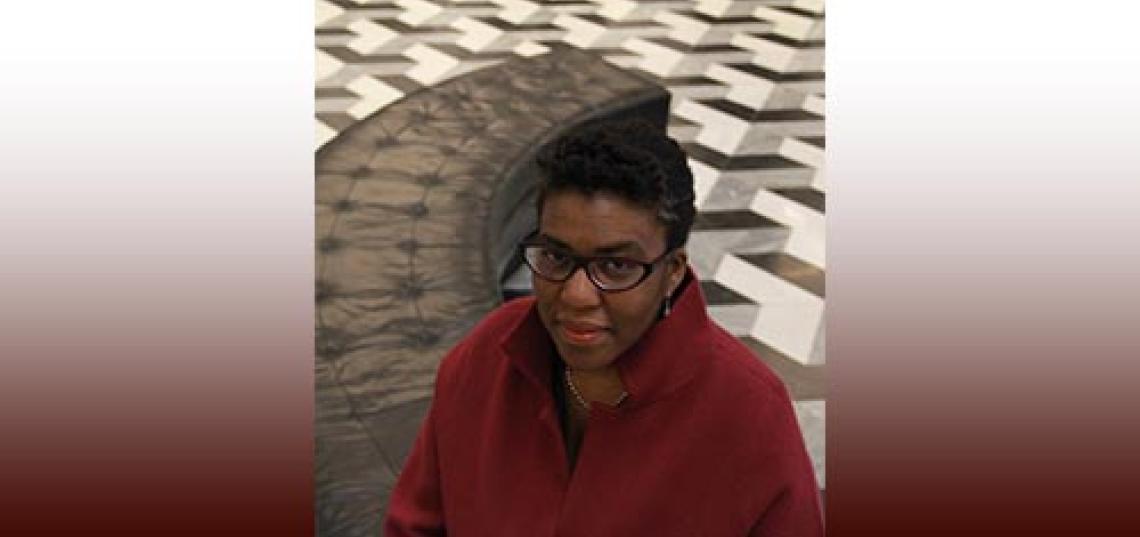
Anne Washington MLIS’01, an assistant professor of Data Policy at New York University, is passionate about knowledge, especially within the field of data science.
She presents her scholarly findings in her recently published book, "Ethical Data Science: Prediction in the Public Interest,” in which she describes the ethics of the predictive data science field.
Washington said she hopes the book will “forge connections and solidarities between technologists and other disciplines.”
In addition to her Rutgers education, she majored in computer science at Brown University and she received a Ph.D. from The George Washington University.
Washington has also worked as a Legislative Information Systems Librarian at the Library of Congress in Washington, D.C.
Read our Q&A with Professor Washington and learn more about her book, the classes she teaches at NYU, and the intellectual foundations she said she gained from the Master of Information (previously known as the MLIS) program at SC&I.
SC&I: How did you become interested in your field?
AW: As an undergraduate I worked at the university library while getting my degree in computer science. Ever since, I've been thinking about how to retrieve and manage large collections of digital information. Data science is the natural extension of the same concepts.
SC&I: What classes do you teach at NYU?
AW: I teach in the Data Science for Social Impact program for students working on their Masters of Science in Applied Statistics at New York University. My graduate seminar is about data science ethics. I also teach an undergraduate course called the Power + Politics of Data.
Rutgers gave me the intellectual foundations for what I do now, from seeing the similarities between archival collections and machine learning benchmarks to recognizing the philosophical foundations of organizing information.
SC&I: How did you benefit from earning an MI from SC&I?
AW: Professor Betty Turock mentioned in class that someone from the Library of Congress was visiting campus to recruit people. There was an application open for a summer job. I not only got the summer job, but I was hired as a full-time employee and worked at the Congressional Research Service for many years.
SC&I: Do you continue to apply the knowledge you gained through the MI program to your research and teaching today?
AW: Rutgers gave me the intellectual foundations for what I do now, from seeing the similarities between archival collections and machine learning benchmarks to recognizing the philosophical foundations of organizing information.
SC&I: Did your doctoral dissertation relate to your master's thesis, and if so, how?
AW: Well the biggest connection between my master's thesis and doctoral dissertation was Nick Belkin. Information retrieval got me to Rutgers. I wanted to learn it all: the technical, linguistic, and human interaction aspects of search. I did my master's thesis on Natural Language Processing (NLP) with Nick. My dissertation continued my interests by investigating search practices within organizations. Professor Belkin served as an outside member of my doctoral committee.
SC&I: What concepts and ideas do you strive the most to share with your students?
AW: Information scientists started the search revolution which promptly ushered in the explosion of data science today. Humans have been organizing the world's knowledge for millennia. Well before claims of artificial intelligence, we had good old human intelligence from the archivists and librarians who safeguarded documents, ledgers, books, and scrolls. Maybe computer scientists could pay more attention to the core principles that drive these relevant and timeless fields.
I did my master's thesis on Natural Language Processing (NLP) with Nick Belkin. My dissertation continued my interests by investigating search practices within organizations. Professor Belkin served as an outside member of my doctoral committee.
SC&I: Congratulations on the publication of your forthcoming book in December 2023, please tell me more about it.
AW: My book "Ethical Data Science: Prediction in the Public Interest" explores the inherent tradeoffs in analyzing digital traces of human behavior. Despite being viewed as a public good, predictive data science often prioritizes financial and political interests over all other concerns. Each chapter pairs a layer of technical effort alongside broader ideas to emphasize the conceptual choices that are at stake at each stage of the process. The book enriches appreciation of each computational task by connecting it to methods from the arts and humanities. For instance, building data science models is connected to the work of historians who also piece together fragmented sources to develop a plausible narrative. I want the book to forge connections and solidarities between technologists and other disciplines. With everyone thinking together, I feel that we will be able to improve the societal consequences of predictive technology.
Learn more about the Master of Information degree at the Rutgers School of Communication and Information on the website.
Photo: Courtesy of Anne Washington
